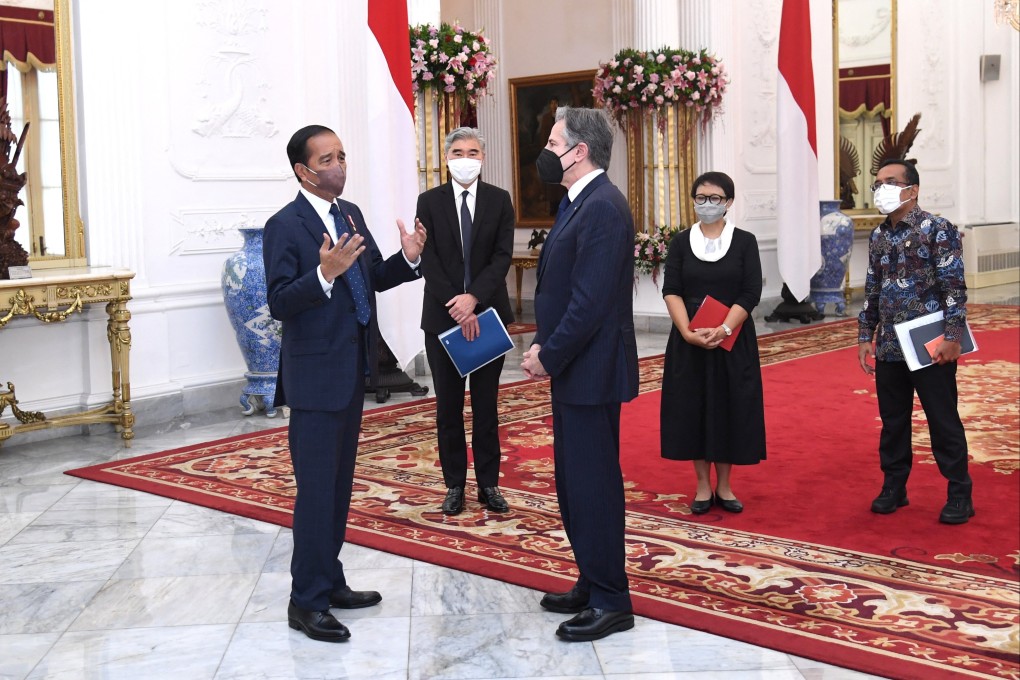Advertisement
US seeks closer ties with ‘key player’ Indonesia as Blinken set to make Indo-Pacific speech
- The US Secretary of State’s trip coincides with a visit to Jakarta by Russian leader Putin’s National Security Adviser
- Washington is seeking to counter Beijing in Southeast Asia through stronger economic engagement
Reading Time:5 minutes
Why you can trust SCMP
5

US Secretary of State Antony Blinken on Monday arrived in Indonesia as part of his first Southeast Asia tour, meeting President Joko Widodo in Jakarta, where he pledged to increase economic ties with Indonesia, particularly in investments and infrastructure development.
Summarising the meeting with Jokowi, as the president is known, Indonesian Foreign Minister Retno Marsudi said Blinken showed a keen interest in partnering with their country, especially in infrastructure.
“The U.S. commitment was very noticeable,” Retno told reporters. Blinken congratulated Jokowi on Indonesia’s G20 presidency and expressed support for its Indo-Pacific leadership role, as a “strong proponent of the rules-based international order,” State Department spokesperson Ned Price said, adding human rights, the pandemic and the climate crisis were also discussed.
Advertisement
Blinken will deliver a speech about Washington’s Indo-Pacific strategy on Tuesday, including its plans for deeper engagement with the 10-member Asean bloc. After meeting key Indonesian officials, he will head to Malaysia and Thailand later in the week.
The Biden administration has yet to elaborate on its vision for stronger economic engagement with the region, although the top US diplomat for Asia, Daniel Kritenbrink, said recently there would be a focus on trade facilitation, the digital economy, supply chain resilience, infrastructure, clean energy and worker standards.
Advertisement
Blinken is the latest in a string of senior US officials who have travelled to Southeast Asia in recent months, as the region shapes up to be a battleground in the US and China’s ongoing competition for influence.
Advertisement
Select Voice
Choose your listening speed
Get through articles 2x faster
1.25x
250 WPM
Slow
Average
Fast
1.25x